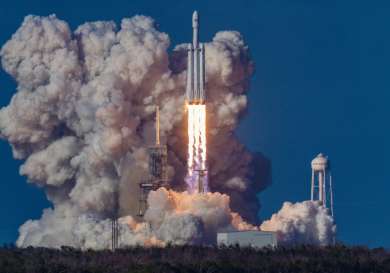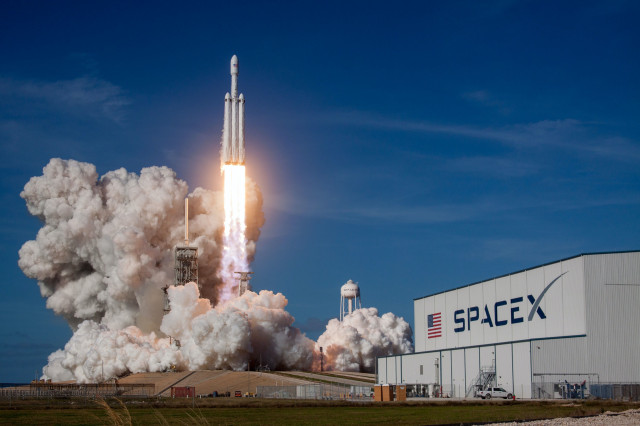2024, the year we race to conquer space. Will it also be the year we can add the cosmos to our travel bucket-lists?
The year 2023 witnessed an unprecedented surge in private space exploration, with billionaires at the helm of ambitious projects that have redefined the landscape of space travel. As we step into 2024, it is imperative to scrutinise the impact of the billionaire space race on the future of space exploration and the broader implications for humanity.
The Protagonists: Bezos, Musk, and Branson
Jeff Bezos, founder of Amazon and Blue Origin, Elon Musk, the visionary behind Tesla and SpaceX, and Sir Richard Branson, the maverick behind the Virgin Group, have spearheaded this new era of space exploration. These tech magnates have not only reshaped industries on Earth but are now extending their reach to the cosmos.
As of the latest data available, Bezos' Blue Origin has successfully conducted multiple suborbital flights with its New Shepard rocket. Musk's SpaceX continues to break records with its Falcon and Starship rockets, launching satellites, resupplying the International Space Station, and laying the groundwork for future Mars missions. Branson's Virgin Galactic has focused on space tourism, providing civilians with a taste of weightlessness aboard its SpaceShipTwo.
Economic Investments and Market Trends
The race to space comes with a hefty price tag, and the financial investments made by these billionaire entrepreneurs are staggering. In 2023 alone, the combined investments by Bezos, Musk, and Branson in their respective space ventures surpassed $20 billion, according to financial analysts.
The space industry, once dominated by governmental space agencies, is witnessing a paradigm shift. Private companies are now at the forefront, driving innovation and competition. The commercial space sector is projected to reach a valuation of over $1 trillion by 2030, with satellite deployment, space tourism, and lunar exploration expected to be major revenue streams.
One of the most publicised aspects of the billionaire space race is the advent of space tourism. Blue Origin and Virgin Galactic have already begun offering suborbital flights to civilians, with ticket prices ranging from $200,000 to $500,000. Despite the hefty cost, demand remains robust, with reservations for future flights surpassing expectations.
Data from market research firms suggest that the space tourism industry could reach a market value of $3 billion by 2025, and further exponential growth is anticipated in the following years. Industry experts predict that as technology advances and costs decrease, space tourism could become more accessible to a broader demographic.
Global Collaboration and Concerns
While the billionaire space race has fuelled excitement and innovation, it has also sparked concerns about its implications for international collaboration and equitable access to space. The dominance of a few private entities in space exploration raises questions about how regulatory frameworks will evolve and how nations will collaborate on future space endeavours.
Environmental concerns also loom large. The carbon footprint of rocket launches and space activities is under scrutiny, and the space industry is under increasing pressure to develop sustainable practices. Striking a balance between technological progress and environmental responsibility will be crucial for the long-term viability of the space industry.
The Road Ahead: Mars, Moon, and Beyond
Looking ahead to the coming years, Mars and the Moon have become the next frontier for exploration. Musk's SpaceX envisions the colonisation of Mars, with ambitious timelines for sending the first humans to the red planet. NASA's Artemis program aims to return humans to the Moon by the end of the decade, with an emphasis on sustainability and international collaboration.
As the billionaire space race unfolds, the future of space travel is undeniably being shaped by private enterprise. While challenges and concerns persist, the achievements and advancements made by Bezos, Musk, and Branson underscore the potential for transformative breakthroughs in our understanding and utilisation of space. As we watch this space odyssey unfold, one thing is certain: the billionaires have set their sights on the stars, and the journey has only just begun

































